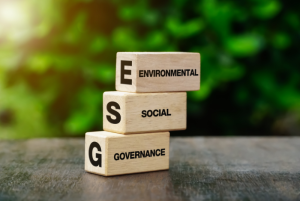@ the IERP® Global Conference, August 2024
Beginning with an explanation of how the drive to embed sustainability in business plans came about, Masayu M Husain, GM of Petronas’ Governance, Planning & Performance in Corporate Sustainability, pointed to the United Nations Sustainable Development Goals as a catalyst. UN SDGs have been in effect for some time, helping to guide governments and businesses in their sustainable development efforts. The 2015 Paris Agreement, in particular, was a watershed in that it was a legally binding agreement for countries.
Countries agreed to set targets and goals for sustainability – but how could these be aligned with disclosures and reporting? Reports at country and international levels became major drivers of change while driving efforts in support of sustainability. The connection to sustainable reporting was shared goals, which also provided a mechanism to track progress. “With increased accountability, countries’ actions can be showcased, and countries can be held accountable for their impact,” Masayu said. “Disclosure becomes paramount.”
Sustainability inevitably involves standards and frameworks but many standards have now been consolidated, making sustainability reports the basis of benchmarking and ESG ratings, which are important from the perspective of investors and other stakeholders. Poor ratings could affect finances and reputation, leading to financial and reputational loss. There are other reasons for striving for good ratings, she added. “If you have good ESG ratings, you have better pricing for green financing, for example.”
Being benchmarked against ESG shows who the leaders are, who followers are – and who is lagging behind. Additionally, regulators are pushing for mandatory disclosures. Bursa, for instance, already has sustainability reporting requirements and intends to enhance this with ISSB requirements. Companies with listed entities or subsidiaries in Europe will be required by government policy to lodge reports on emissions by 2026. The thrust for reporting is intensified when companies have memberships in associations, which may require disclosure.
Other stakeholders such as NGOs may also ask for disclosures; if companies decline to disclose, they run the risk of having their emissions calculated for them publicly, which may not always be a good thing. There are ways of finding out. “The good way is for you to tell (your) stories instead of having other people tell it for you,” Masayu advised. She emphasised that Sustainability Reporting was not about compliance, but about having a strategic tool to drive business. “It is a management tool,” she said. “You use it wisely to manage your climate risks and opportunities.”
She shared a number of examples of how Petronas is managing its sustainability matters, admitting however that “Petronas is not a leader of Sustainable Reporting; we are quite behind” – but suggested some ways that companies can consider exploring. Commenting on the need for governance, for example, she said that although it was broad, its structure, processes and responsibilities were simple. “It is the engine driving the company,” she said. “It’s about how to create control and comfort levels. You have active involvement by the board to gain traction.”
Whatever is presented to the board is deliberated and becomes actionable; targets must be reported to the board. Once it is at board level, it trickles down. She pointed to the endorsement of sustainability as a leadership theme by Petronas in 2023, underscoring its importance. “Governance is like ethical conduct,” she stressed. “In sustainability, we talk about promoting human rights, labour practices etc – that’s governance,” Petronas asked all its related entities to adopt this policy and implement it. “The key element to governance is to do it deliberately…no half-measures,” she said.
Without putting sustainability into company strategy, it’s really hard to progress because that is not a priority. “Have sustainability at the top of the agenda,” she advised. “You cannot talk about increased production without handling emissions…or about capital allocations without allocating some for green growth. Open your minds to how companies strategise on how to attain their objectives and take examples from what others have done. Revise the way you do things; sustainability is deliberate. If you do not revise anything, people are doing business as usual.”
What gets measured, gets monitored; what gets monitored gets managed. With the appropriate matrices, companies can keep track of whether or not they are on target. Reporting also helps maintain standards and transparency, making the company responsible for delivering on its sustainability objectives. “Sustainability disclosures are something like financial disclosures,” Masayu said. “It’s to inform your (stakeholders about) decision-making. We have to earn trust to be considered credible; to earn this trust we must emphasise clarity, be open, and be transparent in our Sustainability Reporting.”


























